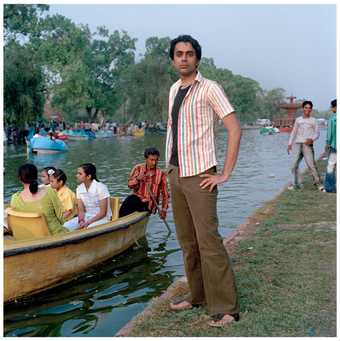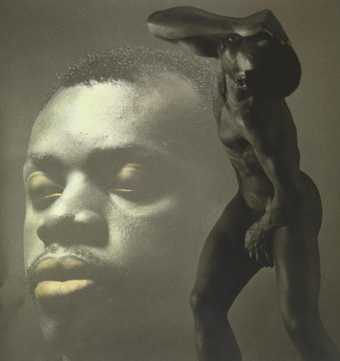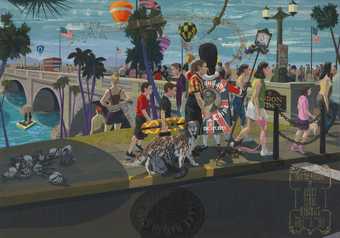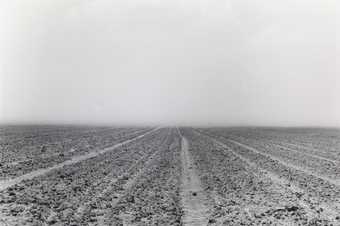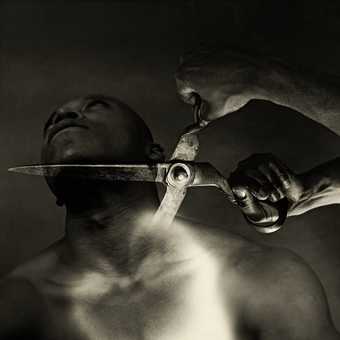
Rotimi Fani-Kayode, from the series Abiku (Born to Die) 1988, gelatin silver print on paper, 39 × 39 cm
© Rotimi Fani-Kayode, courtesy Autograph ABP
The Kayode family were the keepers of the Shrine of Yoruba Deities and priests of Ife. Rotimi Fani-Kayode (1955–1989) understood his cultural heritage. He did not have an ‘identity crisis’. He knew exactly what he was and what he represented, and how his lifestyle and work would affect those around him.
‘On three counts I am an outsider: in terms of sexuality; in terms of geographical and cultural dislocation; and in the sense of not having become the sort of respectably married professional my parents might have hoped for.’ He was aware of the systems he was trying to penetrate and that he was someone who occupied contradictory spaces. He wrote, ‘Europeans faced with the dogged survival of alien cultures and as mercantile as they were in the days of the Trade, are now trying to sell our culture as a consumer product. I am inevitably caught up in this.’
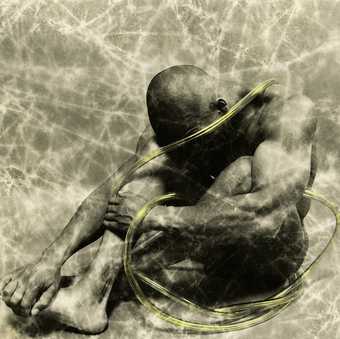
Rotimi Fani-Kayode, from the series Abiku (Born to Die) 1988, gelatin silver print on paper, 38.5 × 37.5 cm
© Rotimi Fani-Kayode, courtesy Autograph ABP
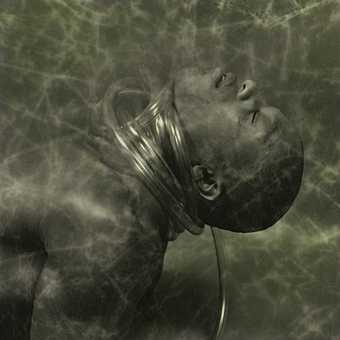
Rotimi Fani-Kayode, from the series Abiku (Born to Die) 1988, gelatin silver print on paper, 29 × 29 cm
© Rotimi Fani-Kayode, courtesy Autograph ABP
Kayode was at the forefront of blowing apart the stereotype. He resisted categorisation and labelling.
He was not an afro-essentialist and spent most of his life in the West. He was an African man with a camera who took the time and trouble necessary for developing his techique. Kayode was no young pretender, but understood photography both in techical terms and historically. He did not expect some fast track to success. He wanted his work to have an impact and, at the same time, to educate both in the West and the ‘Third World’.
‘Both aesthetically and ethically,’ he said, 'I seek to translate my rage and my desire into new images which will undermine conventional perceptions and which may reveal hidden worlds. Many of the images are seen as sexually explicit – or more precisely, homosexually explicit. I make my pictures homosexual on purpose. Black men from the Third World have not previously revealed either to their own peoples or to the West a certain shocking fact: they can desire each other.’
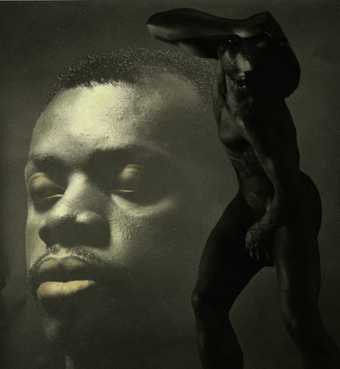
Rotimi Fani-Kayode, Untitled 1988, gelatin silver print on paper, 24 × 22 cm
© Rotimi Fani-Kayode, courtesy Autograph ABP
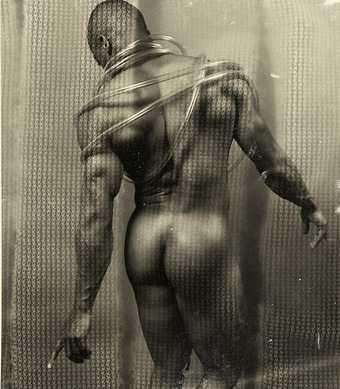
Rotimi Fani-Kayode, from the series Abiku (Born to Die) 1988, gelatin silver print on paper, 39.4 × 46.3 cm
© Rotimi Fani-Kayode, courtesy Autograph ABP
A selection of photographs by Rotimi Fani-Kayode is included in the Intimacy, Activism and AIDS display at Tate Modern. A further photograph, Bronze Head 1987, is included in the display Walk Through British Art at Tate Britain. Fani-Kayode was the founding chair of the influential Association of Black Photographers (now known as Autograph ABP).
Dr Mark Sealy is Director of Autograph ABP. This article is an edited version of an essay originally published in the exhibition catalogue Rotimi Fani-Kayode: Communion.

